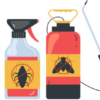
Top 5 Expert Tips to Prevent Seasonal Allergies
Seasonal allergies, commonly referred to as hay fever or allergic rhinitis, affect millions of individuals worldwide each year, primarily during spring and fall. When pollen is around, sneezes, itchy eyes, and congestion can bring everything from mildly annoying to utterly unbearable.
Though you cannot possibly remove allergens from the environment, there are things you can do to reduce your exposure to these substances and ameliorate the symptoms of your allergies. Follow these tips and let seasonal allergies not take the better part of you.
Here’s a listicle that talks about the top five tips to prevent seasonal allergies ranging from easy lifestyle changes to simple home adjustments. These tips will help you manage your symptoms and make it possible for you to enjoy the outdoors without the constant discomfort caused by seasonal allergies.
Monitor Pollen Counts
One of the most effective ways to help avoid seasonal allergies is by knowing your daily pollen counts. Changes in pollen counts occur frequently, and when high concentrations of pollen are floating through the air, allergic reactions are more intense.
It’s easy to keep tabs on the latest pollen levels by visiting weather websites, using mobile apps, or watching local news stations. Monitoring counts during peak allergy seasons, spring and fall-is particularly crucial. Try to limit time outdoors when counts are high, particularly during early morning peak pollen hours.
Bonus Tip: Schedule outdoor activities when pollen trends tend to recede on those high-pollen days. This simple adjustment can make all the difference in reducing exposure and preventing seasonal allergies.
Closing windows and doors
Opening windows in springtime goes well to create a flow in the house during the pollen season; however, it gives entrances for allergens, and they can freely increase seasonal allergies within the house. Windows and doors should be closed on days with high pollen counts, just to keep the living spaces free from sufficient allergens circulating inside.
More importantly, having an air-conditioning system with HEPA (High-Efficiency Particulate Air) filters can purify the indoor air inside your house by catching pollen and other particulates suspended in the air. This has been proven to be one of the most effective means of getting rid of allergens and comfort for allergic sufferers in your indoor environment.
Shower and Change Clothes After Outdoor Activities
For instance, when you are stepping out for some fresh air, pollen might stick to your clothing, body, and hair. Be sure to clean this right after getting back indoors to avoid having your seasonal allergies deteriorate.
A shower right after being outside can help wash away pollen clinging to your body. In addition, change your clothes and wash them regularly during allergy seasons to reduce the amount of allergens you carry into your home.
Pro Tip: Put on sunglasses and a wide-brimmed hat when outside to help protect eyes and hair from pollen.
Over-the-Counter Allergy Medication
Many OTC allergy drugs can be prescribed to you so that your seasonal allergies are not too severe. The usual antihistamines, decongestants, and sprays for the nasal passages could act on sneezing, itching, and congestion relief. These work by suppressing one’s histamine response to allergens.
Begin with allergy medications early in the season even before a symptom arises not to let seasonal allergies gain the upper hand. However, always consult your health care provider in case you are not sure which medication to use or even if you have health conditions such as pregnancy.
Create an Allergy-Proof Home
Your home is where you get refuge from allergens. Seasonal allergies can be reduced by cleanliness. Clean carpets and rugs with a vacuum cleaner that has HEPA filters to trap pollen, dust, and other allergens. Dust surfaces with a wet cloth to avoid stirring allergens up into the air you breathe.
To avoid the accumulation of allergens where you sleep, washing your bedding at least once a week, including pillowcases and sheets is vital.
Use an air purifier in your bedroom and other regularly occupied spaces. HEPA-filtered purifiers will also capture allergens in all their forms, hence removing even the smallest ones from a room.
The Bottom Line
Seasonal allergies do not have to be a challenge. You just need to monitor pollen counts, keep an indoor environment neat and clean, and make some slight changes in your lifestyle, which helps reduce allergenic exposure and minimize your symptoms. So, adopt these top five tips to prevent seasonal allergies and enjoy the seasons with less pain and better health.
If your symptoms persist, then you must visit an allergist or healthcare provider where you can discuss other options for treatment, including possibly allergy shots or prescription medication.







